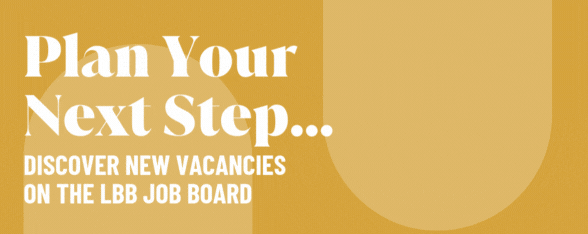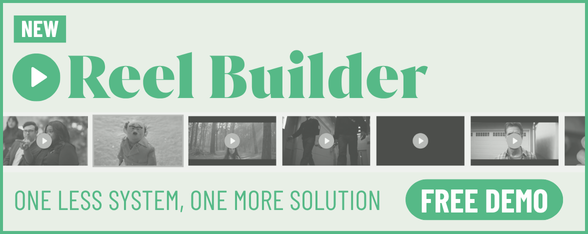
Meet Your Makers: Never Stop Learning with Ollie Perrin

Ollie Perrin has been a producer for over 10 years and has worked for an array of clients, across many different types of projects, both commercial and non-commercial. He was an in-house producer at a live-action production company for just shy of a decade before moving to his new home, A+C Studios. As a producer, he works across the studio’s short and long-form commercial projects as well as being part of the development team for the studio’s expansion plans.
LBB> What first attracted you to production? Has it been an industry you’ve always worked in or did you come to it from another area?
Ollie> I would say necessity attracted me to production rather an inherent desire to work in this role. I was hired by a director-lead production company to fulfil a number of roles – creative writing, editing, admin, operations and generally assisting around the studio. It became apparent very quickly though that the company needed me to focus all my efforts onto the production elements of the role and leave the more creative elements to other people.
I don't think I was inherently scared by that prospect either. By that point in my career I had been around and worked under a series of producers, both commercial and long-form, so I understood what the job entailed. Equally, my formal education before this had taught me the basics of what I needed to do and roughly how to do it.
LBB> What was your first role in the production world and how did this experience influence how you think about production and how you grew your career?
Ollie> At the very beginning, I was working in runner and production assistant roles for a number of different production companies and filmmakers but never with the view of actually being a producer. I was attempting to build a network and hone my knowledge, certainly from a commercial sense. I was just trying to find my way. Since then everything sort of fell into place.
I think because it (me becoming a producer) was so unplanned my views on production are perhaps a bit different to other producers I’ve met. I’m pretty relaxed and happy to be reactive (when needed). Which I’ll leave for people I’ve worked with to say whether is a good or bad thing.
LBB> How did you learn to be a producer?
Ollie> I learned as I went to be honest; learning from colleagues, learning from more senior producers and learning from clients. Obviously this was coupled with research along the way, constantly asking questions and learning from mistakes. Every day is a school day – a clichéd saying but no less true.
Every project is different, every client is different and the world is constantly changing so I don’t think I’ll ever think I’ve completed my learning of the role. Anytime I’ve started to think I’ve cracked it, something has brought me crashing back down to earth and made me question my skill set – which is great as it (hopefully) has kept me sharp.
LBB> Looking back to the beginning of your career, can you tell us about a production you were involved in where you really had to dig deep and helped you to grow as a producer?
Ollie> The project that immediately comes to mind is a production I ran for the IOC working with Poke London. It was a very complicated shoot; or, at least, it was complicated for the producer I was at the time. The client was based over many different time-zones, we only had the budget to film in one day, and we had to convey three different places around the world at three different times – all at low-light. I was definitely thrown into the deep end. Whether the agency hired me as they trusted me to do it or I was the cheap option I’ll leave them to answer but regardless I grew massively as a result.
LBB> A good producer should be able to produce for any medium, from film to events to digital experience. Do you agree or disagree with this statement?
Ollie> Broadly, I agree. I think, like any job really, there are going to be some producers who are better at certain briefs, scripts or mediums than others. But ultimately, it's down to a few simple elements – principally those of managing the budget and schedule. If you can run those two elements effectively you’re well on the way to having a successful project.
LBB> What’s your favourite thing about production and why?
Ollie> The best thing about production is definitely shooting. The energy that you have on set, when a project is live and you're juggling so many things, it forces you to reach a higher state of consciousness - which is pretty addictive. I appreciate that sounds incredibly pretentious but other producers (and 1st ADs for that matter) will know what I mean.
LBB> How has production changed since you started your career?
Ollie> The budgets are always creeping down (or have leaped down in some cases) and demands are the same or increasing. That isn’t only just production teams feeling that pinch though - brands and agencies are being asked always to provide more for less.
Another big change, and as an extension of the above, are the deliverables lists now - they can be humongous! When I first started out I was delivering just one HD 16x9 film – those days are well and truly gone.
There are some really positive changes though – principally being the levels of diversity in the work we create; whether that’s in the scripts, in the casting briefs, in the target audience, in the message or the tone. It’s nowhere near perfect but we're not just appealing to white middle class men, or their wives, like so much of the work I made used to be.
As a result, the make-up of creative teams and production crews is getting more and more diverse which can only be a good thing. Again, nowhere near perfect, but the makeup of the teams I hire has changed so much in my time as a producer.
LBB> What do you think is the key to being an effective producer - and is it something that’s innate or something that can be learned?
Ollie> I think it can definitely be learned because I learned it - and I've not met anyone that at 13 years old wanted to be a producer. Having said that, I think the key is to be a really clear communicator. By that, I don't just necessarily mean always making sure you’re super transparent but more learning to recognise what the core of any issue is and being able to address that successfully.
Second to that would be knowing the process from start to finish, as best you can, and really getting your head around the workflow needed for each project.
And thirdly, I think the key to being effective, and a bridge between the first two - is honesty. Be honest when there are gaps in your knowledge or you know there isn’t enough money to execute what the client has asked for and there will always be a solution or someone to get the project where it needs to be. Don't pretend like you know everything because you'll get found out very quickly!
LBB> Which production project from across your career are you most proud of and why?
Ollie> There’s a couple. The first project that I delivered here at A+C Studios, from start to finish, was a piece for Squarespace. It wasn't a very big production for us, the budget was small and our involvement in it was fairly minimal considering the length of the campaign. But it was the first one, from inquiry to delivery that I produced here so it will always mean a lot.
Another project is a short film called This Bloody Line which I'm incredibly proud of, it was directed by an incredibly talented director from India called Ram Madhvani. He came over to London to shoot it. We had very little budget, had nine hours on location to shoot a period piece and it was a 10 minute long script. I'm very proud of the execution of that.
Finally, I’d be silly not to mention my first short film with my previous company, a film called DIY, which I wrote and produced. It’s a bit trashy but I think it still holds up.
LBB> And in terms of recent work, which projects have you found to be particularly exciting or have presented particularly interesting production challenges?
Ollie> We delivered the new Peperami TVC in the spring – where we brought Animal back in stop motion, that comes immediately to mind. We were commissioned by with a brand new agency and only had 12 weeks from green-light to delivery, which was tight.
We worked with some industry leading production partners along the way though, like Mackinnon & Saunders and Electric Theatre Collective, to add that extra bit of magic and help deliver a project we’re all really proud of.
LBB> Producers always have the best stories. What’s the hairiest / most insane situation you’ve found yourself in and how did you work your way out of it?
Ollie> I’ve a few corkers – none I’d like to share here. All best shared over a beer. Most of the hairy situations were solved though by dipping further into the budget and spending your way out.
LBB> What are your personal ambitions or aspirations as a producer?
Ollie> I just want to keep making great work. Ultimately, I think every producer wants to stop getting involved in the minutiae side of the job. That involves having a bigger team below you or moving up to an EP role.
LBB> As a producer your brain must have a never ending "to do" list. How do you switch off? What do you do to relax?
Ollie> I think the key is - and this took a long time to learn - to know when the ball is in somebody else's court and you can take a breath. Or a break. When you've completed a task and you've sent it to a client or a freelancer and you know that there's nothing else you can do on the project until you get their response... learning when those breaks are and then knowing you can go home for the evening and switch off, that’s really important.
I’ve lost hours of my life thinking I needed to stay in the office late and send e-mails at midnight but those (mostly) aren’t needed and it never looks great.
LBB> Producers are problem solvers. What personally fuels your curiosity and drive?
Ollie> Wanting to learn. I think having a knowledge gap is really irritating but exciting at the same time. If we're using a new bit of software or a new workflow that I haven't learned, I think understanding that and incorporating that into your skillset going forward is great. It keeps you on your toes.
The knowledge gap that I had when I moved to A+C Studios was vast, and it will take me years to catch up to the level of Dan Richards. That's really exciting to me and keeps me motivated. As soon as you start thinking that you’ve cracked it or you lose that curiosity, then that's when mistakes happen.
LBB> What advice would you give to people who are interested in becoming a producer?
Ollie> I’d say to just work with as many producers as you can because there's no model of how to be one, I feel. People have different vibes, different styles, and different paces – so work with as many as you can. You can then work out what type of producer you're going to be and pinch all the elements of other producers you like for yourself.
LBB> From your experience what are the ingredients for a successful production?
Ollie> I mean, as always, budget and time. If you've got enough budget and you've got enough time, you can do anything.
Beyond the obvious, I also think having the person at the top of the creative ladder, whether that's the creative from the agency or the director (ideally both) with a clear vision about what they want to achieve and successfully communicating that to everybody else... I think that is the best element a production can have, because then everything else just falls into place after that.
Calmness is key, I feel. I think I'm pretty laid back as a producer; I try to keep quite a level head and it’s served me in good stead. I don't let the good things get me too high and I try not to let any curveballs or grenades get me too low.
LBB> And what’s the key to a successful production-client relationship?
Ollie> I don't think there's one set way of having a successful client relationship because everybody's different and every company is different. I think there are a few basic traits to have when building your relationships like clarity of communication, honesty, integrity and respect but those aren’t always a given.
You need to be able to recognise what the client wants the relationship to be or what they have the bandwidth for it to be and adapting your style accordingly. Some clients, and some companies, prefer to be a bit cooler with their communication a bit more hands off - working through systems and protocols. Sometimes just adhering to this creates a successful relationship.
Some clients, on the other hand, want to work very closely, communicating on WhatsApp, going out for drinks and building a bond outside of the project to make the process a bit smoother, and that's also great.
















